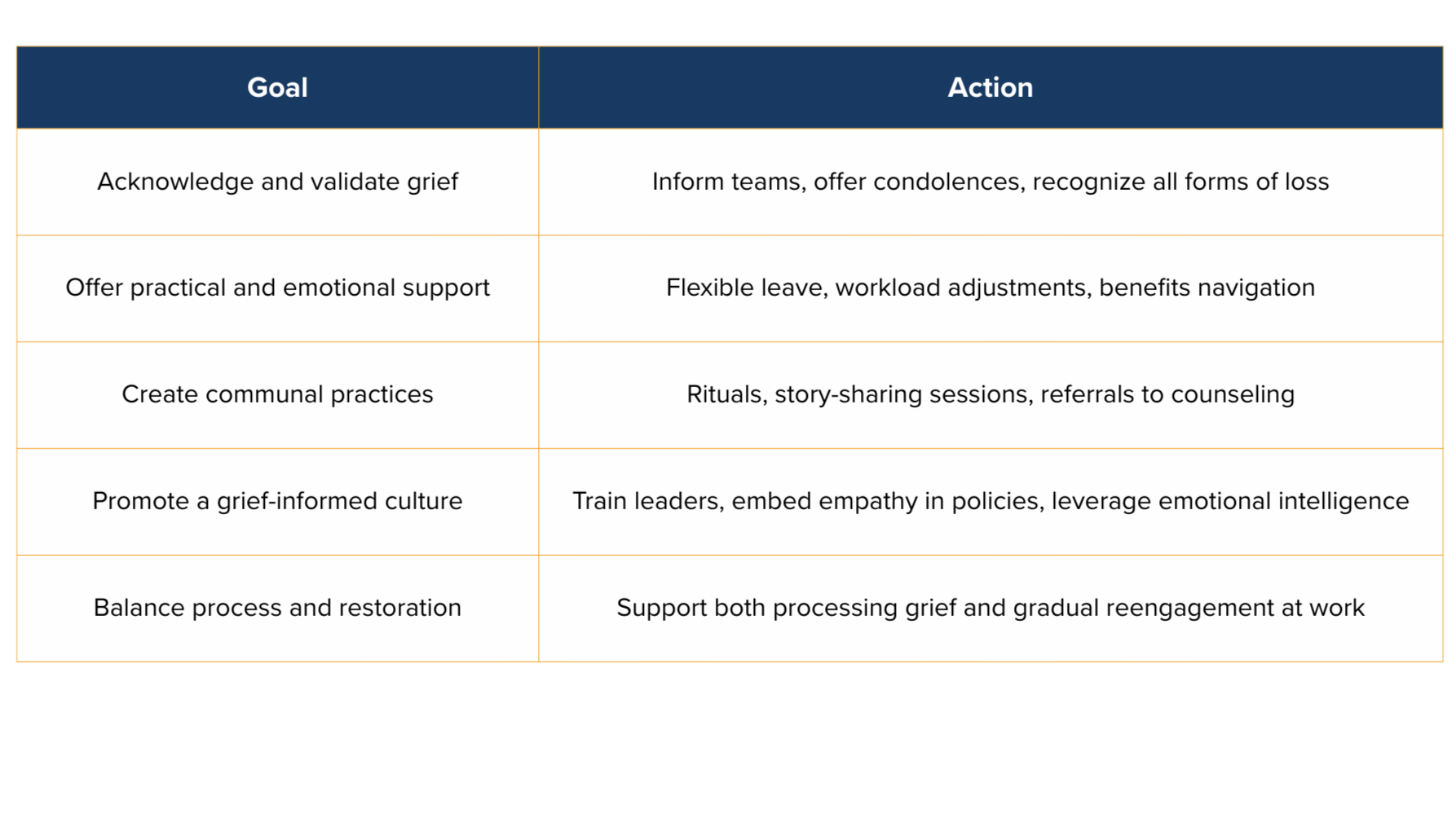Leading Through Loss: What Managers Must Know About Grief at Work
Grief at work is often underestimated—but it’s never just about time off. When a team member suffers loss, managers have a powerful opportunity to support healing, sustain productivity, and shape resilient workplace culture.
Why Grief Matters in the Workplace
Recent research highlights how unacknowledged grief can deeply damage organizational culture and retention. In her article for MIT Sloan Management Review, Meghan Riordan Jarvis explains that grief extends far beyond individual circumstances and that supporting employees through loss can be a meaningful cultural inflection point.
Moreover, industry coverage like Reuters underscores practical measures—such as flexible bereavement leave, workload adjustment, and inclusive definitions of “loved one”—that both relieve suffering and boost loyalty.
Managerial Strategies That Work
Provide Flexible Bereavement Policies: Employees often need more than the standard few days. Leading companies offer pay and flexible schedules over extended periods, accommodating both emotional recovery and logistical challenges.
Adjust Workloads and Expectations: Grief disrupts focus and energy. Managers should consider lightening workloads, extending deadlines, and allowing remote work to ease transitions.
Offer Proactive, Contextual Support: Some companies provide tangible support, such as emergency funds or benefits guidance, for funeral costs and other immediate needs.
Normalize Diverse Grief Experiences: Recognize that grief isn't always tied to the death of immediate family: it may involve pets, friendships, or “disenfranchised grief,” losses often overlooked by societal norms.
Create Rituals and Safe Spaces: The Financial Times highlights the importance of rituals—like condolence books or group sessions—and calls for managers to explicitly avoid “business as usual” in the wake of loss.
Understand Grief’s Process (Not Just Stages): Models like the dual-process model of coping emphasize oscillation between acknowledging loss and engaging in restorative life tasks. Managers can support this natural rhythm.
How Loeb Leadership Supports Grief-Informed Leadership
At Loeb Leadership, we recognize that supporting grieving employees is an ongoing responsibility, not a one-time event. Our Grief Doesn’t End Webinar emphasizes that grief extends far beyond initial bereavement leave and intersects with mental health, equity, and inclusion.
In my own writing, like What Culture Looks Like When No One’s Watching, I’ve explored how emotionally intelligent leadership creates trust-based environments where employees feel safe bringing their whole selves to work.
Similarly, our insights on How to Bring Up Mental Health in the Workplace highlight the importance of open dialogue and proactive support. Together, these resources illustrate our commitment to helping leaders approach grief with empathy, strategy, and resilience, while building cultures where healing and productivity can coexist.
Manager’s Action Plan at a Glance
Conclusion: Building Resilient, Grief-Informed Workplaces
Handling grief at work properly is not just humane, it’s strategic. Managers who demonstrate trauma-informed leadership by offering flexibility, empathy, and tangible support help employees feel valued during one of life’s most difficult times. Creating policies for bereavement support in the workplace, fostering open conversations about workplace mental health after loss, and equipping leaders with grief-informed leadership strategies are all crucial steps toward building resilient, people-centered organizations.
If your organization is looking to develop leaders who can navigate complex challenges like grief in the workplace, explore Loeb Leadership’s coaching and consulting services. Together, we can help your leaders build the skills needed to lead with compassion, confidence, and resilience.
Follow Tamara Fox on LinkedIn for more insights on employee health and wellness, navigating grief and trauma at work, organizational culture, tips for successful mergers & acquisitions, and more.




